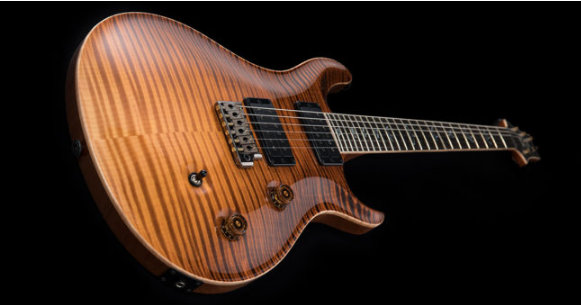Products Category
- FM Transmitter
- 0-50w 50w-1000w 2kw-10kw 10kw+
- TV Transmitter
- 0-50w 50-1kw 2kw-10kw
- FM Antenna
- TV Antenna
- Antenna Accessory
- Cable Connector Power Splitter Dummy Load
- RF Transistor
- Power Supply
- Audio Equipments
- DTV Front End Equipment
- Link System
- STL system Microwave Link system
- FM Radio
- Power Meter
- Other Products
- Special for Coronavirus
Products Tags
Fmuser Sites
- es.fmuser.net
- it.fmuser.net
- fr.fmuser.net
- de.fmuser.net
- af.fmuser.net ->Afrikaans
- sq.fmuser.net ->Albanian
- ar.fmuser.net ->Arabic
- hy.fmuser.net ->Armenian
- az.fmuser.net ->Azerbaijani
- eu.fmuser.net ->Basque
- be.fmuser.net ->Belarusian
- bg.fmuser.net ->Bulgarian
- ca.fmuser.net ->Catalan
- zh-CN.fmuser.net ->Chinese (Simplified)
- zh-TW.fmuser.net ->Chinese (Traditional)
- hr.fmuser.net ->Croatian
- cs.fmuser.net ->Czech
- da.fmuser.net ->Danish
- nl.fmuser.net ->Dutch
- et.fmuser.net ->Estonian
- tl.fmuser.net ->Filipino
- fi.fmuser.net ->Finnish
- fr.fmuser.net ->French
- gl.fmuser.net ->Galician
- ka.fmuser.net ->Georgian
- de.fmuser.net ->German
- el.fmuser.net ->Greek
- ht.fmuser.net ->Haitian Creole
- iw.fmuser.net ->Hebrew
- hi.fmuser.net ->Hindi
- hu.fmuser.net ->Hungarian
- is.fmuser.net ->Icelandic
- id.fmuser.net ->Indonesian
- ga.fmuser.net ->Irish
- it.fmuser.net ->Italian
- ja.fmuser.net ->Japanese
- ko.fmuser.net ->Korean
- lv.fmuser.net ->Latvian
- lt.fmuser.net ->Lithuanian
- mk.fmuser.net ->Macedonian
- ms.fmuser.net ->Malay
- mt.fmuser.net ->Maltese
- no.fmuser.net ->Norwegian
- fa.fmuser.net ->Persian
- pl.fmuser.net ->Polish
- pt.fmuser.net ->Portuguese
- ro.fmuser.net ->Romanian
- ru.fmuser.net ->Russian
- sr.fmuser.net ->Serbian
- sk.fmuser.net ->Slovak
- sl.fmuser.net ->Slovenian
- es.fmuser.net ->Spanish
- sw.fmuser.net ->Swahili
- sv.fmuser.net ->Swedish
- th.fmuser.net ->Thai
- tr.fmuser.net ->Turkish
- uk.fmuser.net ->Ukrainian
- ur.fmuser.net ->Urdu
- vi.fmuser.net ->Vietnamese
- cy.fmuser.net ->Welsh
- yi.fmuser.net ->Yiddish
Dream Guitars: DIY or Buy?
Date:2020/3/4 10:34:38 Hits:

You’ve spent countless hours pondering every component, and finally you can visualize it — your ideal dream guitar. You see it in your dreams, in the clouds in the sky, even in that spaghetti stain on your T-shirt. Only one question remains — should you have your dream guitar custom-built, or do you choose a solid platform and then mod your guitar to perfection? Guitarists at Sweetwater have pursued both paths to bring their dream guitar into reality — here are the pros and cons of modding your guitar to your personal specs or commissioning a custom build just for you.
Two Different Paths Toward Your Dream Guitar
We’ll compare two different approaches you can take to having the guitar of your dreams — the DIY approach versus the custom-build approach. Let’s start by defining what exactly we’re talking about.
The DIY Approach
Unless you’re looking for something truly revolutionary that the world has never seen before, there’s a good chance that one guitar company or another already makes something close to your dream guitar. After all, there’s a reason that Les Pauls, Telecasters, and Stratocasters remain so popular after so many decades. When we talk about the DIY approach, we’re talking about taking a guitar that meets some (maybe most) of your needs and swapping out different components (pickups, tuning hardware, possibly the neck, and so on) to fine-tune every aspect of the instrument to your preferences. Even if you choose to have a professional tech make the changes to your guitar, we’ll still consider this approach to be DIY.
The Custom-build Approach
Many players talk themselves out of the possibility of a custom-built instrument before even looking into it — they may convince themselves “that’s only for world-famous players,” or perhaps that it won’t be worth it in the long run. The fact of the matter is that companies like Gibson Custom, Fender Custom Shop, PRS, and many others build custom instruments for everyday working players very often — more often than greats like Eric Johnson or John Mayer need new instruments, that’s for sure. It’s an opportunity to have a world-class luthier take all of your “wants” and turn them into reality. The result is often a better guitar than even the player expected, and the instrument has the added prestige of having a custom-built story behind it.
Which Path to Take?
You probably already have an idea of whether a DIY approach or a custom build is better suited for your dream guitar, mostly based on how close your ideal is to existing instruments. If you’ve always wanted a Strat with 6-way pickup switching and other custom electronics, plus your favorite set of pickups, it’s clear that the DIY path will probably give you the results you are looking for relatively simply. If your tastes are more exotic, like if you want a guitar with a 28″-scale neck, eight strings, and a fancy inlaid fretboard, you’ve probably discovered that your needs are better handled by a custom build.
Reasons to DIY Your Dream Guitar
With the DIY approach to building your dream guitar, you don’t need to make the full investment all at once — assuming you have a base instrument to work with, you can upgrade components as your budget allows.
You’ll get to know your instrument much more intimately than you may have before embarking on the DIY path. Little things like the material your saddles are made of suddenly take on a new significance, and you’ll be rewarded with a deeper understanding of the guitar in general.
Your playing style may change over time, and you may find you have different preferences than you did a few months ago — as you embrace the DIY approach, you’ll feel more confident about making future modifications as your needs change.
Reasons to Custom-build Your Dream Guitar
Anything goes — from the specific woods and finish used to the switching scheme and instrument proportions, every aspect of a custom build exists because you said it should.
You’ll experience the mastery of a world-class luthier — whether you’re looking to the Fender Custom Shop, Gibson Custom, PRS, or any other custom shop. These luthiers are doing custom builds because they’re some of the most respected craftsmen in the industry, and it shows in their guitars.
It truly is a life-changing event — almost impossible to describe if you haven’t opened up the case of your first custom instrument. The feeling of having an instrument that was built specifically for you and your playing style is one that will last a lifetime.
So Where Do You Start?
If the DIY approach sounds right for you, you may already be eyeballing one of your guitars and thinking about what you can upgrade. Luckily, we’ve already created some helpful guides to start you on your DIY path.
Leave a message
Message List
Comments Loading...





